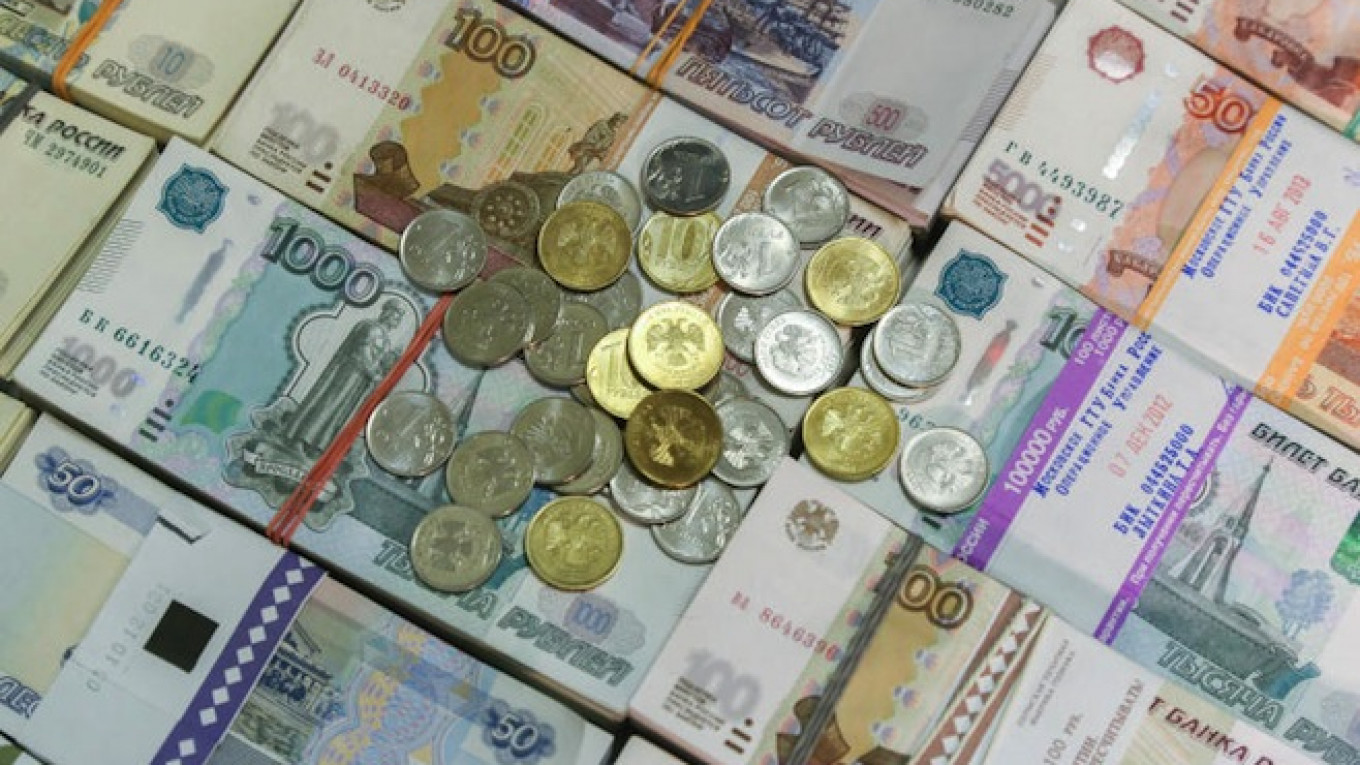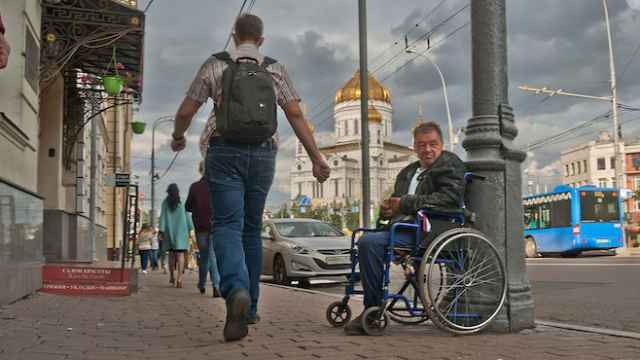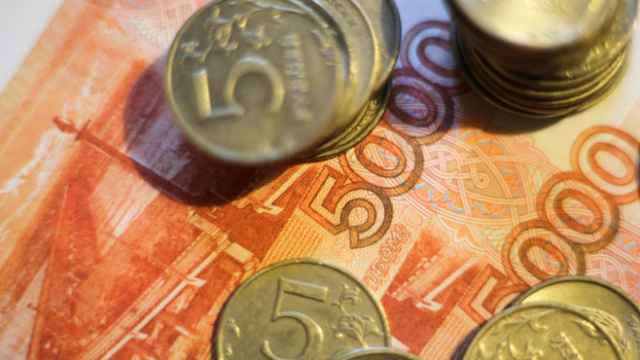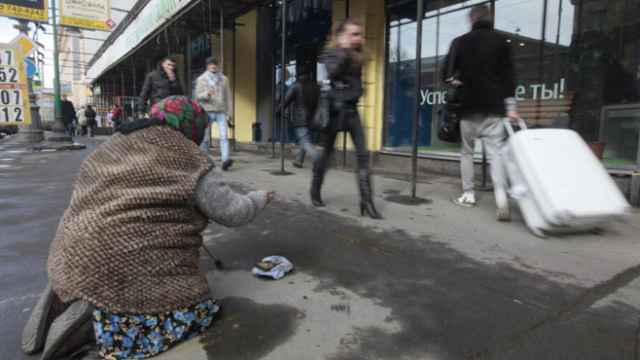The government is failing to protect Russians who are falling into poverty at the fastest rate in nearly two decades, an economist said in an interview published Monday.
The soaring inflation that followed Western sanctions against Moscow for its annexation of Crimea and meddling in eastern Ukraine is eroding the value of Russians' wages, while the country's economy is in recession.
When adjusted for inflation, wages were worth 14 percent less in May this year than in the same month in 2014, the head of the income and living standards analysis center at Moscow's Higher School of Economics, Lilia Ovcharova, said in an interview published on the website of Kommersant, a business daily, on Monday.
“We had not seen such a decline for 17 years prior to that, since 1998,” she was quoted as saying. Official data published Friday showed that the pace of the fall slowed to 7.2 percent in June.
Slipping wages are causing poverty, which fell rapidly in the decade and a half after Russia's economic meltdown in 1998, to start climbing. The number of people below the poverty line reached 22.9 million in the first quarter of this year, compared with 19.8 million in the same period in 2014, according to state statistics service Rosstat.
Russia avoided a significant increase in poverty during its previous economic crisis in 2008. That shock came after a period of rapid economic growth, allowing the government to raise the minimum wage and social benefit payments to help the nation weather the turmoil, Ovcharova said.
“This time we have real wages falling for seven months straight, but the government so far has not taken any measures to support the poor,” she was quoted as saying in the interview with the Kommersant publishing house's Ogonyok magazine.
Russians' real wages began to decline last year, when they shed 10 percent of their value compared to 2013, according to official data.
Total household incomes have fallen more slowly. In the first three months of this year they declined by less than 3 percent, because Russians were selling their foreign currency savings, and official statistics count those sales as income, Ovcharova was quoted as saying.
But household real incomes also began to slide in April, and went into a “dramatic” decline in May, losing 8 percent of their value compared to the same period in 2014, she said in the interview.
The savings that Russian families hold in foreign currencies are likely to run out in “five to six months,” Ovcharova said, estimating that household incomes in July would likely fall 8 to 10 percent below their levels in the same period last year, and the decline would further gain pace in August.
The largest numbers of people falling below the poverty line are among those who work in “low paying sectors of the economy,” such as retail, restaurants, agriculture and construction, “and, of course, people who have lost their jobs,” Ovcharova was quoted as saying.
State sector employees have also been hit thanks to below-inflation pay rises, she added.
The official unemployment rate was a relatively low 5.6 percent in May, according to Rosstat, but partial unemployment is rising fast.
“A particular feature of the current crisis is that poverty is growing even in large cities,” Ovcharova said, Kommersant reported.
Russian pensioners have so far not been affected as badly by the crisis as they could have been, because the government increased pensions by 11.2 percent early this year — a raise that partly made up for inflation, which has not fallen below 15 percent since the start of 2015, Kommersant reported.
Other types of social benefit payments were raised by 5.5 percent, Ovcharova said.
Inflation hit a 13-year high of 16.9 percent earlier this year, driven by a ban imposed by Moscow on certain food imports from countries that sanctioned it for interfering in Ukraine and the weakening of the ruble. Inflation stood at 15.3 percent in June.
Contact the author at a.dolgov@imedia.ru
A Message from The Moscow Times:
Dear readers,
We are facing unprecedented challenges. Russia's Prosecutor General's Office has designated The Moscow Times as an "undesirable" organization, criminalizing our work and putting our staff at risk of prosecution. This follows our earlier unjust labeling as a "foreign agent."
These actions are direct attempts to silence independent journalism in Russia. The authorities claim our work "discredits the decisions of the Russian leadership." We see things differently: we strive to provide accurate, unbiased reporting on Russia.
We, the journalists of The Moscow Times, refuse to be silenced. But to continue our work, we need your help.
Your support, no matter how small, makes a world of difference. If you can, please support us monthly starting from just $2. It's quick to set up, and every contribution makes a significant impact.
By supporting The Moscow Times, you're defending open, independent journalism in the face of repression. Thank you for standing with us.
Remind me later.






